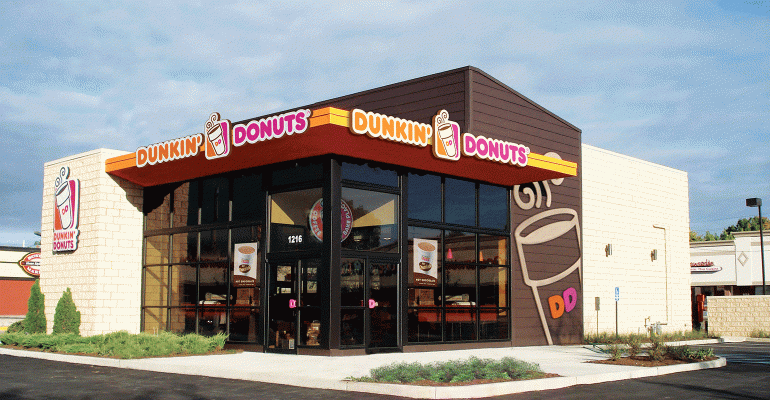On Earth Day, Dunkin’ rounded up the Inspire Brands company’s newest environmental commitments that they are making to promote a more sustainable operating culture, including composting and end-of-day food donation programs to cut down on food waste.
The composting and end-of-day food donation programs, first announced in March, are optional programs for Dunkin’ franchisees. Owners can choose to donate surplus food, like bakery items, shelf-stable food, and unclaimed catering orders, from their stores at the end of the day to local food banks and hunger relief organizations. The composting program let’s franchisees compost coffee grounds and other organic materials that would have ended up getting thrown away.
“Dunkin’ is dedicated to having a positive impact on its customers, communities, and the world around us,” the announcement read. “A critical part of the brand’s journey is taking bigger, bolder action to be more socially responsible in all the ways it operates.”
Here are other environmental initiatives Dunkin’ has announced recently:
- The company is making the switch from plastic to wooden stirrers in 100% of U.S. stores by the end of April, which would remove approximately 1.2 million pounds of plastic from the waste stream every year.
- Dunkin’s Keurig K-Cup pods are now made with recyclable plastic (though not recyclable in all communities and are based on local recycling restrictions).
- Dunkin’ donated to $200,000 to plant 200,000 trees in Honduras and Guatemala in partnership with the nonprofit organization One Tree Planted to promote “regional environmental stability” and cleaner air, water and soil health.
- The company has created a farmworker training program in partnership with consultants from the global merchant firm, the Louis Dreyfus company, for supply chain farmers in Honduras to address sustainability challenges, workforce issues, and human health and safety issues.
- Providing a gender equity workshop for coffee suppliers in Guatemala and Colombia.
Leadership in sustainability is quickly becoming a crucial aspect of operations for the largest restaurant industry brands. Taco Bell just announced a recycling program for its hot sauce packets, and Chipotle will begin tying executive compensation to sustainability goals.
Contact Joanna at [email protected]
Find her on Twitter: @JoannaFantozzi




